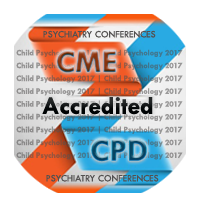
Anselme Sadiki
Children’s Home Society of Idaho, USA
Title: Changing the conversation about children and adolescent mental health and suicide prevention
Biography
Biography: Anselme Sadiki
Abstract
Mental illness can be detected at an early age with appropriate diagnosis, but stigma, lack of access to care prevent any successful intervention and recovery. The United States and many other countries in the world are experiencing an unprecedented high suicide death rates associated with epidemic drug overdose and mental illnesses among children and adolescent youths. The incidents of deaths involving any type of opioid overdose increased by more than 300 percent between 1999 and 2015; according to the Centres for Disease Control, more than 52,000 Americans have died of an overdose in 2015 of which, 33,000 were related to opioids. That is one death every 10 minute. Adolescent children and people with mental health disorders are at a greater risk of drug abuse than the general population. There needs to be an integrated approach to help improve the outcomes for many of those experiencing both mental illnesses and substance abuse. There are many obstacles to overcome to improve mental health care for children, chief among them, the stigma associated with psychiatric illness and addiction. To change the conversation how we approach the mental illnesses and how we treat people with mental illnesses, we first must remove the stigma we attach to mental illnesses. Stigma creates barriers to treatment for mental illnesses, and it appears to be worse in rural areas than larger cities. Stigma leads to more suicides because people are embarrassed, ashamed, or discouraged by cultural norms to ask for help. The goal of this presentation is be to encourage a dialogue and awareness on how to deal with psychiatric illnesses and addiction – seeing the person and not the illness. Unless we change the conversation and openly talk about mental illnesses as root causes of high rate of suicide we are witnessing, we will continue to see children, adolescent, men and women, and elderly taking their own lives.

